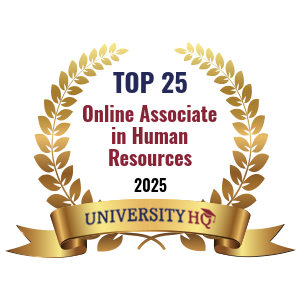What Career Options are Available for Human Resource Management Majors?
A degree in human resource management can provide you with the knowledge and skills necessary to pursue a wide variety of employment opportunities in Mississippi. The field is quite expansive, with relevant jobs available across numerous industries. While graduates can work for companies and organizations in almost any sector, most occupations are found in business, finance, education, and healthcare.
Human resources managers work for companies and organizations of every size and type, often functioning as a bridge between employees and upper management. Most are employed by professional, scientific, technical services, management, and manufacturing industries, although they are found in healthcare, social assistance, and government sectors as well. Responsibilities vary, but these professionals typically plan, coordinate, and direct a wide variety of administrative tasks for their employers. These generally pertain to the oversight of recruitment processes and staff training. In some cases, they may also be expected to discuss strategic planning and keep top executives informed about worker satisfaction.
Daily duties typically vary by job title, business type, and industry. While some professionals in this field spend most of their time managing employee benefits programs, other primarily focus their efforts on supervising the work of departmental specialists and support staff. Other common responsibilities include addressing staff issues through mediation and disciplinary procedures, participating in job interviews, and providing in-take briefings. Human resources managers also regularly work with other management staff members.
Notably, it’s possible for these professionals specialize in one or two aspects of the field. Some popular areas of expertise include:
- Compensation and Benefits Managers
- Training and Development Managers
- Labor Relations Directors
- Employee Relations Managers
- Payroll Managers
- Recruiting Managers
- Staffing Managers

Featured Online Programs
Online Human Resources Education in Mississippi
According to the US Bureau of Labor Statistics (BLS), employment for human resources managers is projected to grow 6% from 2023 to 2033. This is about as fast as the average for all occupations and will result in an increase of about 16,300 jobs openings each year.
Job outlook for a similar profession in the field is slightly better. Employment for human resources specialists is expected to increase by 8% from 2021 to 2031, which is faster than the average for all occupations. This will result in an additional 81,900 relevant job openings each year. While these positions are often considered to be entry-level, they do provide a good means of entering the field.
Professional and business services is the fifth largest industry in Mississippi, accounting for $8.3 billion in revenue each year. Individuals skilled in human resources are employed by companies and organizations in almost every industry, however. This makes is possible for graduates to find jobs other popular state sectors as well such as manufacturing, real estate, education, healthcare, retail, wholesale, finance, entertainment, transportation, and construction.
Based on data provided by the BLS, Mississippi employed 650 human resources managers and 4,700 human resources specialists as of May 2021. The annual mean wage reported for these jobs ranged between $54,530 and $103,350. Even the lower end of this income scale is above the state’s annual mean wage of $45,180 for all occupations.
Accelerated degree programs in human resource management and other related subjects are offered by colleges and universities in Mississippi and throughout the United States. While online learning makes it easy to enroll anywhere, those who plan to work in the state are encouraged to attend local institutions. These schools offer the most geographically relevant curriculums, ensuring students gain the knowledge and skills most important to nearby employers. It’s also common for higher education facilities to coordinate internship opportunities with local companies and organizations, which can lead to full-time employment after graduation.
Human resources management professionals in Mississippi generally require some amount of higher education. While some entry-level employment opportunities exist for those with high school diplomas or GEDs only, most employers expect candidates to possess bachelor’s degrees. Earning a degree not only ensures that minimum hiring expectations are met, but that workers have the essential knowledge and skills for success, as well.
Many colleges and universities offer human resource management programs, with enrollment options typically available at the associate, bachelor’s, master’s, and doctoral levels. In some cases, prospective students may also find relevant professional undergraduate and graduate certificate programs. These may be best suited for individuals with backgrounds in other subjects but who intend to pursue human resource management moving forward.
Each degree level prepares students for different types of employment. As a result, it’s often a good idea to research potential graduation outcomes prior to selecting a program.
Online Associates (AS)

Associate degrees in human resource management generally consist of 60 credit hours of coursework that take full-time students approximately two years to complete. The majority of undergraduate programs like these are comprised of both general liberal arts and major-specific classes. This means that students typically study basic communication, mathematics, and science subjects in conjunction with major-specific content. As a result, those enrolled often develop strong academic foundations for future learning, as well as getting a basic introduction to the field. While curriculums vary by institution, human resources management programs at this level often cover topics in talent acquisition, labor laws, conflict resolution, and compensation benefits.
Graduates with associate degrees of this kind can generally pursue employment as human resources assistants, human resources associates, and administrative assistants. While unlikely to qualify for most human resources management professions, there are many entry-level jobs available in the field.
Those seeking to save money on their educations may be particularly drawn to associate degrees. These programs are typically offered by community colleges, which charge lower tuition and fee rates than traditional four-year institutions. Additionally, since course requirements can be completed in as little as two years, graduates may enter the workforce sooner than individuals enrolled in more advanced programs.
It's worth noting that many associate degree graduates choose to continue their education. With better job prospects available, it’s fairly common to go on to seek enrollment in bachelor’s degree programs. This option is made even more alluring by the fact that undergraduate course credits are often transferrable. Most colleges and universities accept up to 60 credit hours from properly accredited schools. This is roughly half of a four-year degree program. As a result, those with associate degrees generally only require two additional years of education before they can graduate with more advanced degrees.
Online Bachelors (BS)

Bachelor’s degrees in human resources management often consist of 120 credit hours of coursework that takes full-time students approximately four years to complete. As undergraduate programs as well, most continue to be comprised of both general liberal arts and major-specific classes. In addition to basic communication, mathematics, and science subjects, human resources management programs of this kind often cover topics in business, accounting, team building, organizational psychology, and conflict resolution techniques. While those enrolled can still typically expect to receive a basic introduction to the field, classes may be slightly more intensive than at the associate level.
Human resources management majors pursuing bachelor’s degrees may also be given opportunities to select concentrations. Choosing a sub-field specialty area like this can help direct instruction and prepare students for work in certain jobs.
Some of the specialty options most commonly available include:
- Business Administration
- Healthcare
- Accounting
- Data Science
- Organizational Leadership
According to the US Bureau of Labor Statistics, the standard minimum education requirement for most human resources management professions is the bachelor’s degree. Graduates also often qualify for employment opportunities as corporate recruiters, compensation and benefits managers, and training and development specialists. Notably, however, related jobs are likely to exist across many other industries.
Alternatively, graduates interested in pursuing more employment opportunities and higher pay can choose to continue their education by enrolling in master-level programs. Prospective graduate school students should be prepared to meet established minimum grade point average (GPA) and Graduate Record Examinations (GRE) score requirements set by gaining institutions.
Find Your Online Human Resources Management Program
Online Masters (MS)

A master’s degree in human resources management generally ranges from 30 to 36 credit hours of coursework that take full-time students approximately two to three years to complete. Graduate programs no longer incorporate general liberal arts classes. It’s worth noting, however, that incoming students may be required to possess certain undergraduate prerequisite courses. This ensures those enrolled have the basic knowledge needed for advanced study of specific topics.
Designed to help graduates qualify for advanced positions in the field, master's degree program curriculums typically include lessons in business strategy, organizational change management, organizational ethics, effective team leadership, personnel staffing, and worker evaluation. Other common areas of study include human resources strategy, organizational culture, and talent management.
Graduates are often considered to have superior knowledge and skills related to human resources management. As a result, they usually qualify for lucrative professions as compensation and benefits managers, senior human resources managers, labor relations specialists, and human resources information systems managers. While this type of degree is rarely required for employment, many companies and organizations give preference to applicants who possess them. This is particularly true for management positions that require conflict resolution.
Online Doctorate (PhD)
A PhD or doctorate in human resources management generally consists of between 60 and 120 credit hours that take full-time students up to seven years to complete. Curriculums vary, but the first few years of enrollment are typically comprised of coursework focusing on topics in compensation management, the foundations of human resources theory and practice, recruiting and retaining talent, organizational behavior and performance, and creating adaptive workplaces. Those enrolled often spend the latter part of these programs performing independent study and research while preparing dissertations. This completed work is usually presented to a board of professors prior to being approved for graduation.
Some colleges and universities also allow doctoral students to select concentrations. Common areas of specialization include:
- Human Resources Management
- Organizational Management
- Training and Development
- Benefits and Compensation
- Higher Education
As terminal degrees, graduates are often prepared for some of the best employment opportunities in the field. They typically qualify for advanced careers as postsecondary educators, human resources consultants, and industrial or organizational psychologists.
Become a Human Resources Manager in Mississippi
With so many different human resources management positions available, one of the first steps should be determining what kind work you want to perform. There are many different jobs to choose from, each with unique expectations and hiring standards. By identifying your ultimate career goals early, you will be better prepared to meet these various requirements. It will also become easier to select an applicable degree program, as well as elective courses, minor areas of study, concentrations, extracurricular activities, and/or internship opportunities.
Once you complete the necessary degree(s) for your chosen profession, you may also want to pursue related professional certifications or licenses. While few human resources management occupations require additional credentials, many employers do give preference to candidates who possess them.
Find Online Human Resources Management Programs
Notably, however, there is no single most important credential for professionals in this field. Instead, those who are interested are free to select any certification(s) they feel will enhance their career prospects. The most important factors to consider when choosing which credential(s) to pursue include subject matter sustainability, accessibility, learning format, and skills focus.
Some of the most popular options available include:
- Society for Human Resources Management Certified Professional (SHRM-CP) via SHRM
- Society for Human Resources Senior Management Certified Professional (SHRM-SCP) via SHRM
- Certified Human Resources Professional (CHRP) via the Human Resources Professionals Association (HRPA)
- Certified Professional in Learning and Performance (CPLP) via Association for Talent Development (ATD)
- Professional in Human Resources (PHR) via the Human Resources Certification Institute (HRCI)
- Talent Management Practitioner (TMP)
- Strategic Human Resources Leadership (SHRL) via the Human Capital Institute
A particularly popular option among human resources management professionals is the Society for Human Resources Management Certified Professional (SHRM-CP) credential. It is administered by the Society for Human Resources Management (SHRM) and demonstrates the ability to perform most general duties associated with the profession and validates expertise in the field. This certification also indicates the ability to function at standard operational levels. Candidate must have actual work experience in operational human resources and with performing other specialized duties. They must also obtain a passing score on the SHRM-CP examination, which covers topics in organization, people, leadership, business, interpersonal, and workplace structure.
Potential Careers for Human Resources Graduates
- Compliance Officer
Compliance officers work to ensure all legal and regulatory compliance matters are handled appropriately. Not only do these professionals verify that their employers meet all necessary certification and licensing requirements, but they also recommend possible policy changes in order to make future compliance easier. They may also be tasked with sharing concerns and suggestions, as well as preparing and presenting their findings to supervisors. According to PayScale, compliance officers make an average base salary of $71,287 per year. - Human Resources (HR) Assistant
HR assistants are hired by companies and organizations to oversee various administrative such as completing on-boarding paperwork with new hires, terminating employment contracts, administering worker benefits, and orchestrating workplace programs. These professionals frequently communicate with employees on behalf of their employers and may also be expected to help improve overall departmental efficiency by promoting the use of fewer resources and/or increasing staff satisfaction. According to PayScale, HR assistants make an average base salary of $42,661 per year. - Human Resources (HR) Manager
HR managers work for companies and organizations overseeing various employee policies and procedures, as well as legal compliance. They are generally in charge of designing, implementing, and managing benefits and initiative programs such as flexible work arrangements, maternity leave, open enrollment, sick leave, and vacation time. These professionals are also responsible for ensuring all human resources activities comply with local, state, and federal laws. According to PayScale, human resources managers make an average base salary of $70,245 per year. - Human Resources (HR) Specialist
HR specialists are responsible for assisting human resources managers in overseeing the daily operations of their departments. They are often placed in charge of specific processes such as payroll, benefits, training, compensation, recruiting, or customer service. As subject experts, they tend to answer a lot of questions, as well as entering data and administering benefit plans. According to PayScale, human resources make an average base salary of $53,224 per year. - Labor Relations Specialist
Labor relations specialists are hired by companies and organization to help resolve various labor relations matters, such as creating collective bargaining agreements and overseeing negotiations processes in accordance with federal government regulations. They are regularly tasked with participating in investigations and administering disciplinary action to employees, as well as conducting labor relations trainings. They may also be expected to participate in employee hiring processes, perform social media maintenance, and/or manage vital data documentation. According to PayScale, insurance labor relations specialists make an average base salary of $73,764 per year. - Receptionist
Receptionists are employed by companies and organizations to perform a wide variety of duties such as screening incoming calls, taking and distributing messages, and informing employees when people arrive for appointments. As the first representative many individuals interact with, they must be able to provide client greetings in person and over the phone and may also be tasked with signing for postal deliveries, managing employee calendars, and coordinating worker for other. According to PayScale, receptionists make an average base salary of $34,799 per year. - Organizational Leader - Training and Development Manager
Training and development specialists use adult education theory to create modern learning solutions work for their company and organization employers. This often entails designing short, instructor-led exercises but may require generating entire educational programs. These professionals can also be tasked with developing work-related training materials, guides, and presentations. In some cases, they are expected to work with subject matter experts and/or management to evaluate and improve existing materials and methods. According to PayScale, training and development specialists make an average base salary of $58,520 per year. - Business Administrator
- Business Manager
Sources:
- Human Resources Managers. U.S. Bureau of Labor Statistics
- Human Resources Specialists. U.S. Bureau of Labor Statistics
- Management Occupations. U.S. Bureau of Labor Statistics
- May 2021 State Occupational Employment and Wage Estimates: Mississippi. U.S. Bureau of Labor Statistics
- SHRM Certified Professional (SHRM-CP). Society for Human Resources Management (SHRM)
Search All Programs
